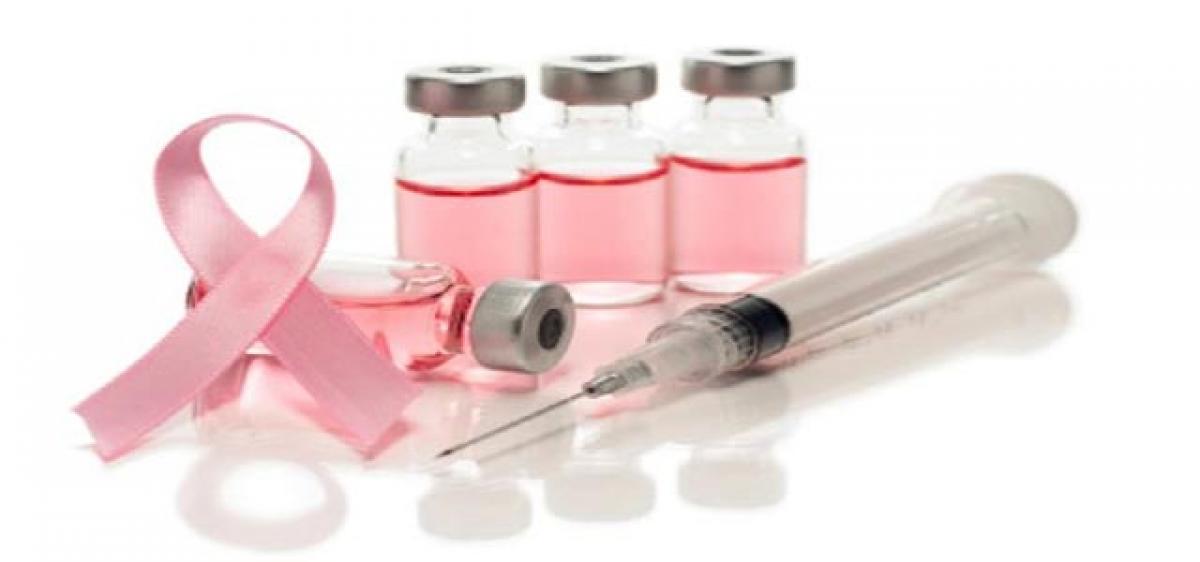Vaccine shows promise in fight against breast cancer

An experimental vaccine is safe and effectively stimulates the immune system leading to regression of early-stage breast cancer, show results of a clinical trial.
An experimental vaccine is safe and effectively stimulates the immune system leading to regression of early-stage breast cancer, show results of a clinical trial. The researchers created the vaccine from immune cells called dendritic cells that are harvested from each individual patient to create a personalised vaccine.
The immune cell vaccine targets the HER2 protein on breast cancer cells. The HER2 protein is overexpressed in 20-25 per cent of all breast cancer tumors and is associated with aggressive disease and poor prognosis.
Researchers had previously shown that immune cells are less able to recognise and target cancer cells that express HER2 as breast cancer progresses into a more advanced and invasive stage. This suggests that strategies that can restimulate the immune system to recognise and target HER2 early during cancer development may be effective treatment options.
In order to determine if the HER2-dendritic cell vaccine is safe and effective, the researchers Moffitt Cancer Centre in Florida, US performed a clinical trial in 54 women who have HER2-expressing early-stage breast cancer.
The dendritic cell vaccines were prepared by isolating dendritic cells from each patients' blood and exposing them to fragments of the HER2 protein. Patients were injected with a dose of their personal dendritic cell vaccine once a week for six weeks into either a lymph node, the breast tumour, or into both sites.
In a study published in the journal Clinical Cancer Research, the researchers reported that the dendritic cell vaccines were well-tolerated and patients only experienced low-grade toxicities. The most common adverse events were fatigue, injection site reactions, and chills. They also showed that the vaccine was able to stimulate an immune response in the majority of the patients.

















